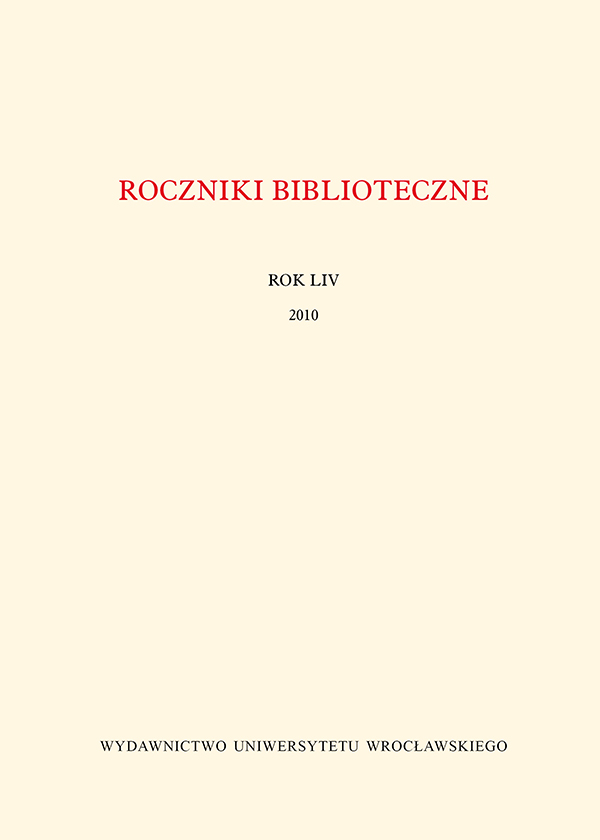

Artykuły i materiały

The cultural role of lending libraries opened at Lviv bookshops in the second half of the 19th century
The article is an analysis, set against the social background, of the functioning and role of paid lending libraries in facilitating access to books among residents of Lviv. The author presents the organisational principles behind these libraries, rules governing their use, and published catalogues, demonstrating similarities and differences in their compilation, size of the collections as well as their language and content structure. The author examines selected book catalogues: of F.H. Richer’s lending library from 1868 and 1873, K. Wild’s library from 1877, A.D. Bartoszewicz’s library from 1877, J.L. Pordes’ library from 1885, H. Altenberg’s library from 1890 and S. Köhler’s library from 1893. Paid lending libraries offered first of all fiction, especially the latest prose by contemporary Polish and European writers. The most numerous group was made up of works by Polish writers: J.I. Kraszewski, J. Zachariasiewicz, M. Bałucki, E. Orzeszkowa, P. Wilkońska and T.T. Jeż. These were complemented by adventure and crime novels, and thrillers by European authors M.S. Schwartz, M. Jókai, A. Dumas, Ch.P. de Kock, E. Sue and É. Gaboriau. There was a rich collection of translations of French and Swedish works, as well as various editions of works by Russian, Hungarian and, to a lesser extent, German writers. There was much less poetry and drama. Readers were not much interested in scientific and popular scientific literature 27% to 9.3% of the collections. Clearly dominant in this group were historical books, including memoirs, particularly those dealing with national uprisings. Their role was to boost people’s national spirit. Paid lending libraries at Lviv bookshops were open to the general public. Although they required subscription, they enabled readers to remain in touch with the latest publications at a much lower cost than in the case of purchasing the books. A comparison of the collections held by Lviv libraries with those made available in the part of Poland under Russian rule reveals a clear similarity in the choice of books and thus a similarity in the readers’ tastes.